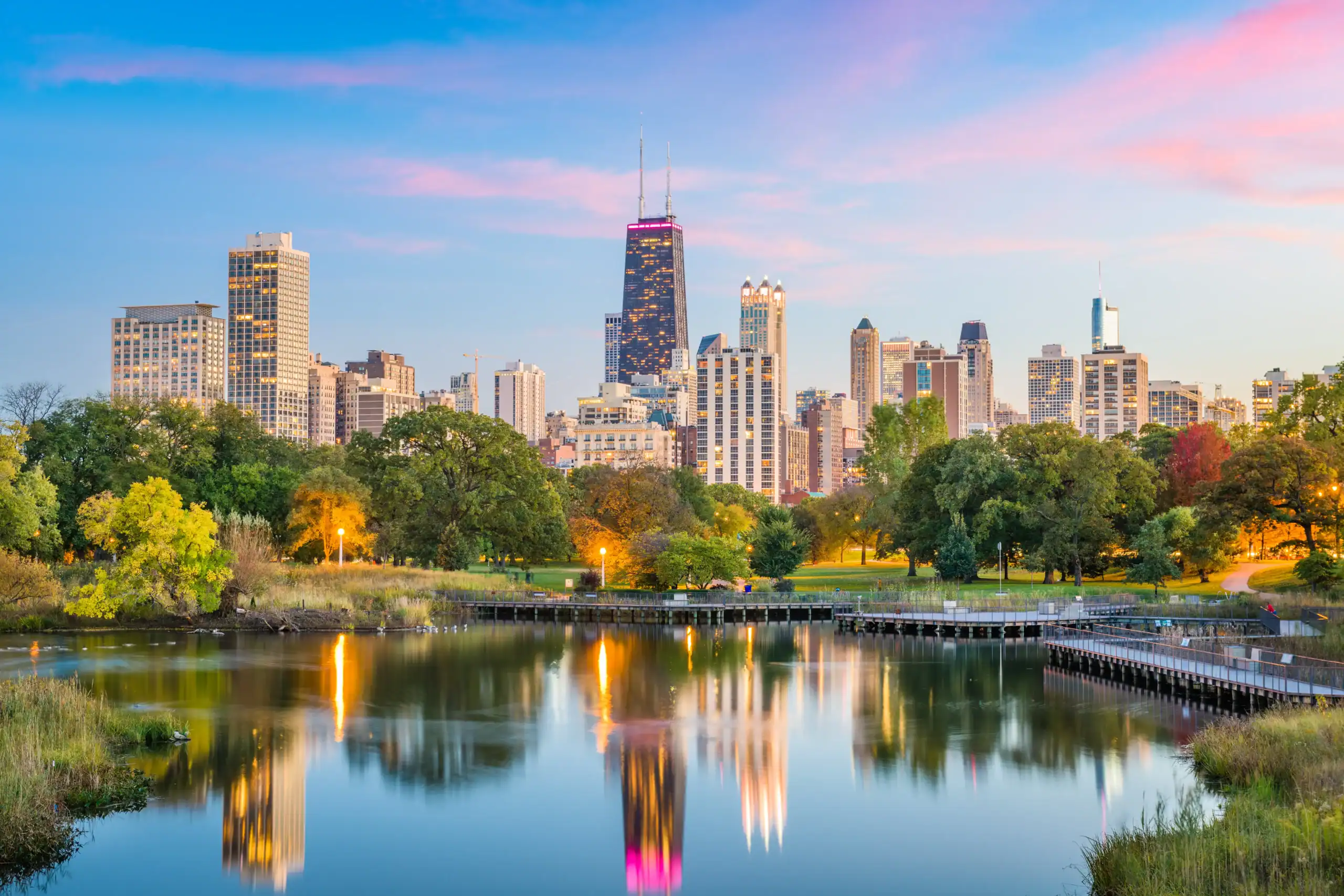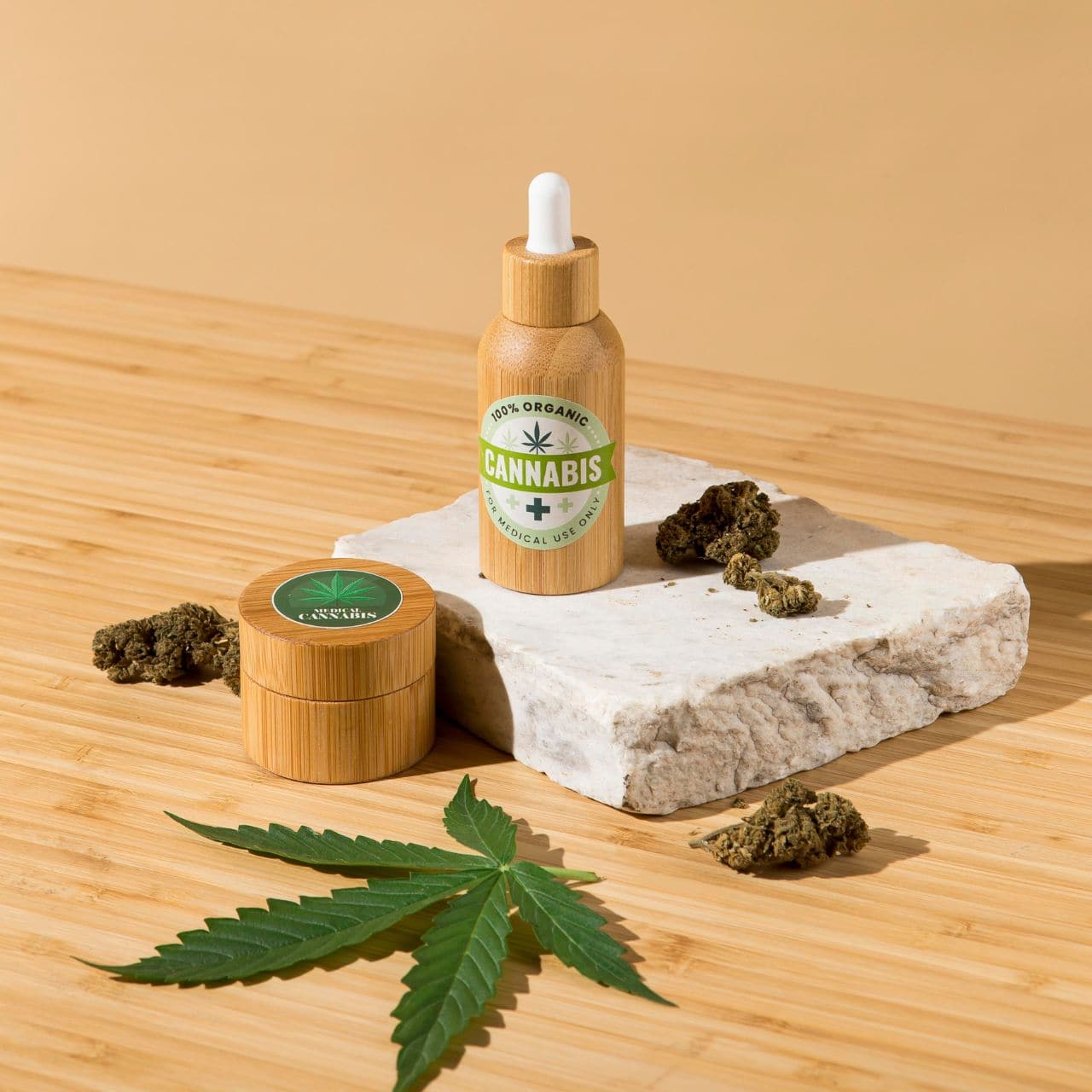
Is THC Legal in Illinois
Yes, THC products are legal in Illinois
 Legal
Legal

Yes, THC is legal in Illinois for both medical and recreational use.
Medical Use: Illinois legalized medical marijuana in 2013 with the Compassionate Use of Medical Cannabis Pilot Program Act. Patients with qualifying medical conditions can obtain a medical marijuana card, allowing them to access and purchase THC products from licensed dispensaries. The program has expanded over the years, making it easier for patients to obtain medical marijuana.
Recreational Use: In 2019, Illinois legalized recreational marijuana for adults aged 21 and older with the passage of the Illinois Cannabis Regulation and Tax Act. Adults can legally possess up to 30 grams of cannabis flower, and 5 grams of cannabis concentrate, and can also cultivate a limited number of plants for personal use.
Both medical and recreational marijuana products must be purchased from state-licensed dispensaries. However, there are restrictions on public consumption, and driving under the influence of THC remains illegal.
THC, or tetrahydrocannabinol, is a psychoactive cannabinoid primarily found in the cannabis plant. In Alabama, THC is legal only for medical use through the state’s medical marijuana program. To access THC products, patients must have a qualifying medical condition and obtain a prescription from a licensed healthcare provider.
THC interacts with the body’s endocannabinoid system by binding to CB1 and CB2 receptors, which are integral to the central and peripheral nervous systems. This interaction influences various physiological processes, such as mood, pain regulation, and appetite. The effects of THC can include euphoria, altered perception, and relaxation, with intensity varying based on individual metabolism and dosage.
In Alabama, THC products are available in various forms, including oils, capsules, and edibles, through state-licensed dispensaries. Patients must familiarize themselves with local laws regarding possession limits and the types of products available. Before purchasing any THC products, always review lab test results to ensure accurate labeling and safety.
If you want to learn more about THC in general, check out our THC Resource Center.
To buy THC products in Illinois, you must be at least 21 years old. This age requirement applies to recreational marijuana purchases under the Illinois Cannabis Regulation and Tax Act. Adults aged 21 and older can legally purchase cannabis products from licensed dispensaries.
They also require a medical marijuana card, which is available at age 18 for medical use; even patients under 18 may legally acquire the treatment but need a named caregiver who may apply for the said medical card and make a purchase on their behalf.
Yes, it is legal to smoke flower in Illinois for both recreational and medical use. Under the Illinois Cannabis Regulation and Tax Act, adults aged 21 and older can legally possess and consume cannabis flower. Registered medical marijuana patients can also use marijuana flower as part of their treatment.
Yes, THC products in Illinois are required to undergo third-party testing. The regulation of cannabis products in Illinois is overseen by the Illinois Department of Agriculture, which mandates that all marijuana products sold in licensed dispensaries undergo testing by state-approved independent laboratories.
These laboratories conduct a variety of tests to ensure the safety and quality of cannabis products. Testing typically includes evaluating cannabinoid potency (such as THC and CBD levels), as well as checking for contaminants like pesticides, heavy metals, molds, and other harmful substances. This rigorous testing process helps ensure that consumers receive safe and accurately labeled products, providing transparency in the cannabis market.
Additionally, the results of these tests are often available to consumers, allowing them to make informed decisions about the products they purchase. This regulatory framework aims to protect public health and safety while ensuring a reliable supply of cannabis products in Illinois.











